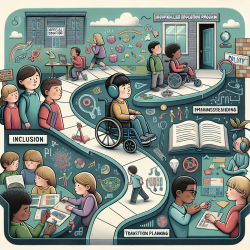Introduction
The mental health of adolescents, particularly in low- and middle-income countries, is a growing concern. The World Health Organization (WHO) has been at the forefront of developing interventions that are not only cost-effective but also scalable, to bridge the mental health treatment gap. A recent study titled Feasibility randomised controlled trial of the Early Adolescent Skills for Emotions psychological intervention with young adolescents in Lebanon sheds light on the Early Adolescent Skills for Emotions (EASE) intervention, aimed at reducing emotional distress among young adolescents in Lebanon.
The EASE Intervention
The EASE intervention is a structured program consisting of seven group sessions for adolescents and three sessions for their caregivers. It focuses on psychoeducation, problem-solving, stress management, and behavioral activation. The intervention is designed to be delivered by trained non-specialists, making it accessible and scalable in resource-limited settings.
Key Findings from the Study
The study involved a randomized controlled trial with adolescents aged 10 to 14 years who showed signs of psychological distress. The participants were divided into two groups: one receiving the EASE intervention and the other receiving enhanced treatment as usual (ETAU). The primary outcome measure was the change in psychological symptoms, assessed using the Pediatric Symptom Checklist.
- Feasibility and Acceptability: The study found that the EASE intervention was feasible and acceptable among the participants. However, improvements in logistics and content delivery were suggested.
- Outcome Measures: While the intervention showed strong psychometric properties, the study did not demonstrate significant changes over time in either group. This suggests the need for further research and refinement of the intervention.
- Challenges and Suggestions: Participants highlighted logistical challenges and suggested improvements in intervention content and assessment measures. These insights are crucial for refining the intervention for broader implementation.
Implications for Practitioners
For practitioners in the field of speech-language pathology and mental health, the findings from this study offer valuable insights. The EASE intervention, with its focus on non-specialist delivery, provides a scalable model that can be adapted and implemented in various settings. Practitioners are encouraged to consider the following:
- Training Non-Specialists: Investing in training programs for non-specialists can enhance the reach and impact of mental health interventions.
- Data-Driven Decisions: Utilize data from feasibility studies to inform the adaptation and implementation of interventions in diverse cultural contexts.
- Continuous Improvement: Engage in ongoing research and feedback loops to refine intervention content and delivery methods.
Conclusion
The EASE intervention represents a promising approach to addressing emotional distress among adolescents in resource-limited settings. While the study highlights areas for improvement, it also underscores the potential of scalable, non-specialist interventions in bridging the mental health treatment gap. Practitioners are encouraged to explore the full potential of such interventions and contribute to the ongoing research and development in this field.
To read the original research paper, please follow this link: Feasibility randomised controlled trial of the Early Adolescent Skills for Emotions psychological intervention with young adolescents in Lebanon.










